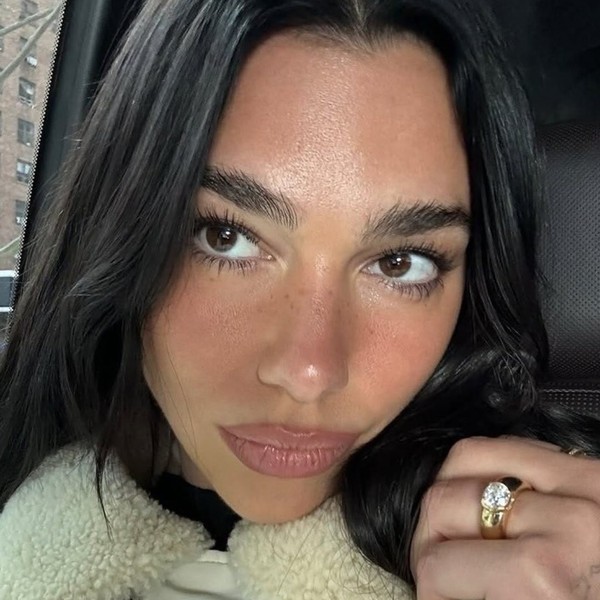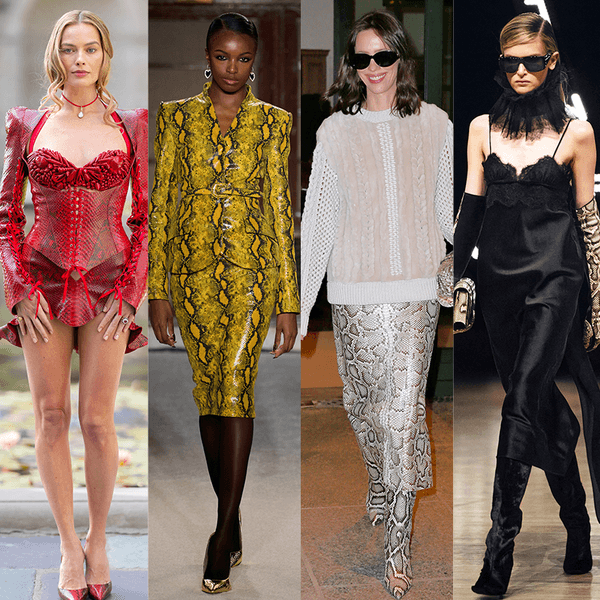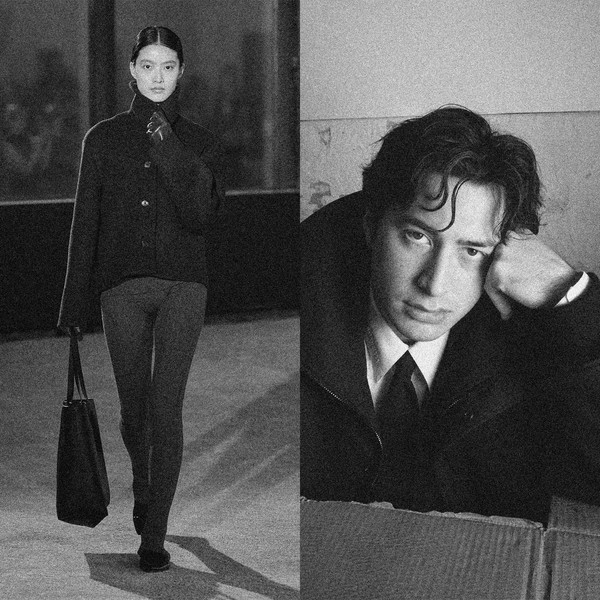Should We Discuss Who's Paying Before The Date?
The world revolves around money and yet it's excruciatingly uncomfortable to talk about.
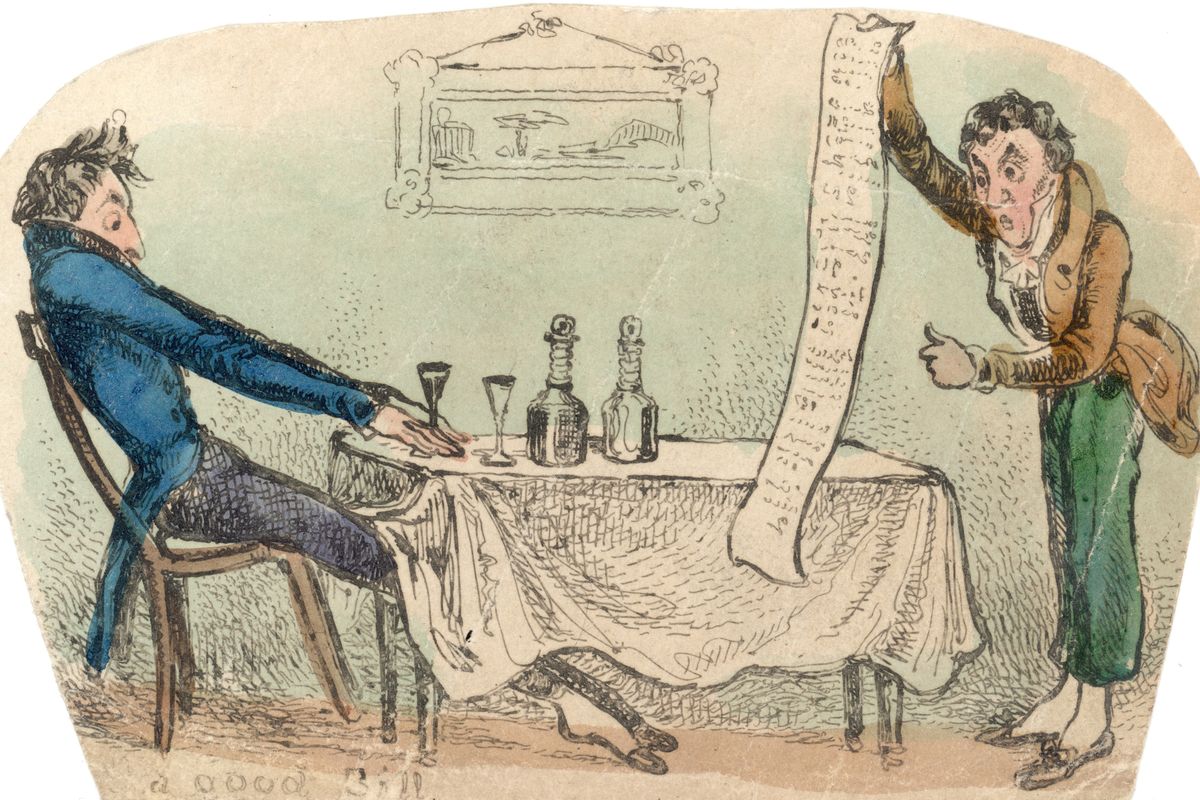
Raise your hand if you've gone on a date completely and knowingly unprepared to pay. Bad form, but I'm sure we've all been there at least once. This was my personal justification: I deserve love despite having [redacted] dollars in my checking account. When the date would come to a (natural or abrupt) end and the check would arrive, anxiety would arise. If I'm asked out on the date, should I assume that the asker is entirely responsible for paying for my Moscow mules? On one hand, that sounds great to me. But on the other hand, it's 2025 and I shouldn't really assume that, within heterosexual relationship dynamics, that the man is willing to fully cover food and drinks for someone they quite literally just met.
Should we be discussing payment before we even go on the first date or is it just me? A prior discussion would eliminate the performative act of reaching for your wallet and asking "do you wanna split it?" followed up with "are you sure?" which feels like an unspoken rule for first dates. There would be no need for assumption based off the limited employment information listed on someone's Hinge profile, race to slap your card on the table first, or sneaky behind the back payments. The world revolves around money and yet it's excruciatingly uncomfortable to talk about. Because at a time of economic decline, unfathomable wage gaps, and a lot of suffering, it can already feel overly indulgent to have anyone pay upwards of $20 for a cocktail on your behalf.
So, should we be having conversations about it before meeting? Just for the sake of everyone knowing what to expect? Or are we comfortable relying on the uncertainty of assumption? I asked seven New Yorkers from varying backgrounds the important questions.
Rachel Rose, Relationship Coach, 36, She/Her

Getty Images
Have you ever encountered people who go on dates unsure about whether or not they will have to pay?
"Yes! As a Relationship Coach, I often encounter women who feel this way, even those who insist they’re looking for a leader and a provider."
Do you think money/who is going to pay should be discussed before going into a date?
"I don’t believe it needs to be discussed directly. Instead, it’s important for each person to be clear about the kind of relationship dynamic they want to create with a new love interest. This is where many people go wrong. Set the stage for the dynamic you desire before spending time with anyone because your time is your most valuable currency, and it shouldn’t be given to just anyone based on minimal attraction."
What are your personal opinions on who should pay in heterosexual relationships?
"I champion heterosexual relationships where there is a clear masculine–feminine polarity. I believe men should court women in whatever way they can. That doesn’t mean dates have to be expensive; sometimes the simplest ones are the most meaningful. What matters is that the man takes initiative and creates an experience where his potential partner feels special and cared for. This sets the pre-text for the kind of relationship you would have together."
What about in non-heterosexual relationships?
"In non-heterosexual relationships, it depends entirely on the dynamic each person wants to experience. When people go on dates without considering the bigger picture, disappointment often follows because expectations aren’t aligned. Be clear about the kind of dynamic you wish to cultivate, communicate it, and move forward only if it aligns for both people."
If it's not discussed ahead of time, what should one do when the bill comes/it's time to pay?
"Since my clients are women seeking men in a heterosexual dynamic, I encourage them to stay grounded in their feminine energy when the bill arrives. You can’t wish for providers while denying space for their leadership to show up, even at this early stage. Remember, you are worth far more than the cost of a meal. Don’t panic. Allow the man to pay, and date only men who find joy in doing so."
If one party pays on the first date, should it be assumed that the other would pay on the second date?
"From my experience with clients in heterosexual relationships, maintaining masculine–feminine polarity means this shouldn’t be assumed. However, I do encourage women to show small gestures of appreciation such as paying for a coffee, a dessert, or offering to split the taxi fare. These gestures, though small, show thoughtfulness and appreciation. No man, regardless of how successful, wealthy, or masculine wants to feel that you expect him to pay or that you depend on him too early on."
Hadley, Finance, 25, She/Her

Getty Images
"I work in finance and date men (and often make more than my dates). I always reach for my wallet and would be happy to pay, but they always say not to worry about it."
Neha, Social Media Marketing Lead, 25, She/Her

Getty Images
Before a first date, do you ever discuss who is going to pay beforehand?
"No, not before! I assume if they ask me they’ll pay though. I have noticed that I kind of offer to pay sometimes but I think that’s usually when I'm not comfortable on the date."
Do you feel like you should or would you even be comfortable doing so?
"The way I see it is I can pay for myself, but I wouldn’t have had to if you didn’t ask me out. So I expect you to pay as a date. But I don’t say yes to a date or a place I know I wouldn’t be able to afford or anything without bringing it up."
What tends to happen when the bill arrives/it comes time to pay?
"If they take the receipt quickly I usually still offer because it’s easier to tell then, rather than them paying and being petty about it later. That way you can know how they approach it earlier on too. It helps nip red flags in the bud. Once a guy told me he knew he had to pay otherwise girls would get mad which told me all I needed to know."
If you’re a woman who dates men, do you assume that the man will offer to pay? Do they usually?
"Yes, I always assume this. Only once has someone let me put down a credit card with no argument. And only once with an argument."
If the other person pays on the first date, what tends to happen if there is a second date?
"They usually still pay! If I ask them out which I might later, then I might pay or give him something small like a little gift or buy ice cream for us but not until I know all intentions are actually genuine."
Do you think money is a touchy subject during the initial stages of dating? If so, why do you think that is?
"Yes and no? I haven’t had it come up too much but I guess by knowing the jobs they work and I work, is how we’ve navigated around the subject before I think. I think status in general is noticeable. One guy I dated still lived with his parents which to me at 24 wasn’t a big deal but he definitely felt insecure that I had my own place and he didn’t. The only time it was noticable money wise was when someone was in grad school and had no other job."
Can you share any specific real life anecdotes regarding paying on dates?
"Oh my god, do I have stories! Just last week a guy didn’t even question or say anything when I put my card down. I was shocked and it had never happened before. The other time was when the guy was petty about it in a weird way saying he wanted a second date but knew he had to pay to get it and begrudgingly did so. I went on a date recently with a guy and he paid and took me home and a week later stopped by with iced tea as a nice gesture and I felt bad he came so far just for that so I brought him chocolate and he was like: 'you don’t have to do that.' He also is European though, and I've noticed that they tend to court more.
Anonymous, Public Relations

Getty Images
"Conversation? The man. Point blank period or it's not a date and if you thought it was, there won't be a second."
Cassidy, Bartender, 27, They/Them
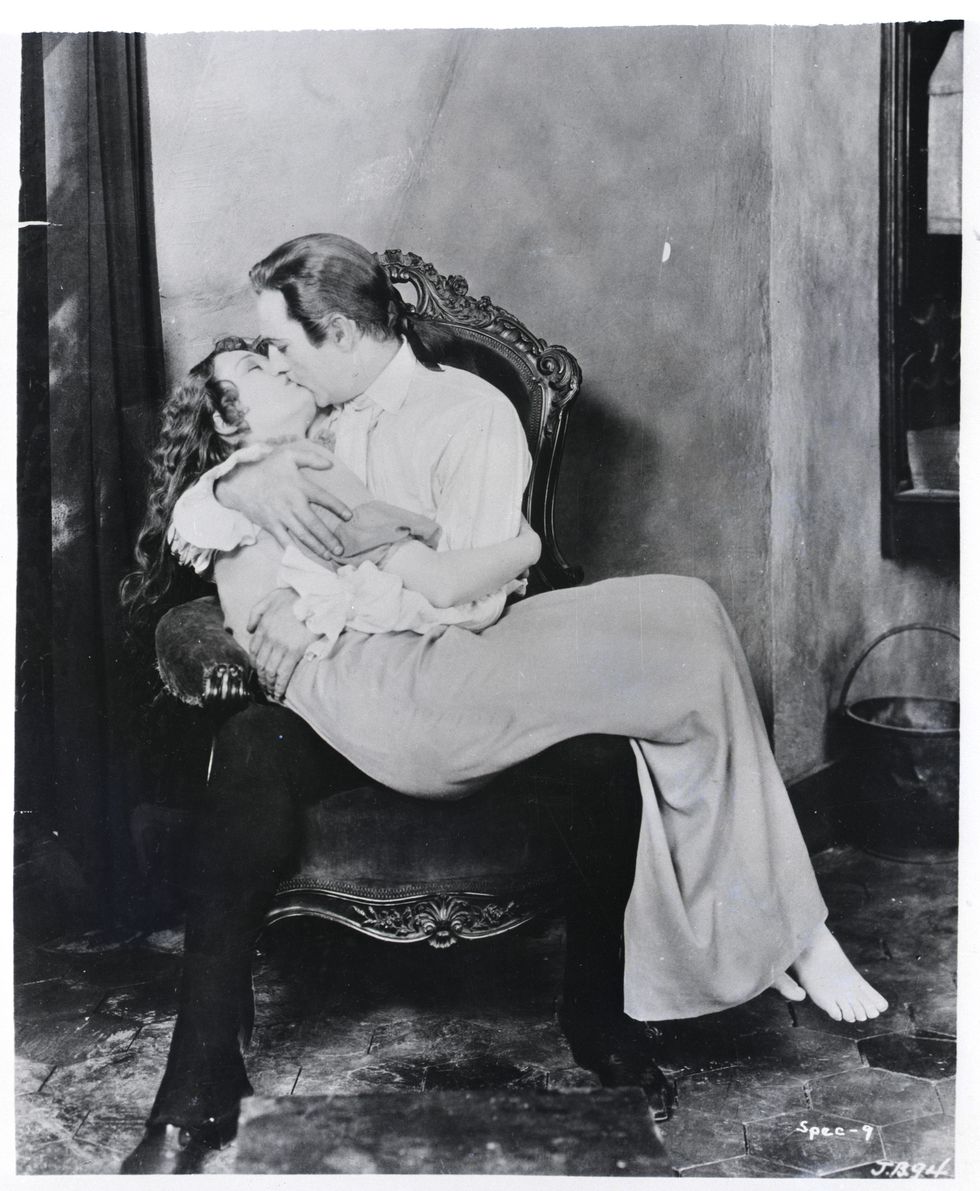
Getty Images
When you go on dates with men, do you assume that they will pay?
"If I'm with a man it's usually assumed that they will pay. Most often it's just drinks. I don't know if I've ever offered to split. On my first date with my ex, we did a few activities and the last one was getting ice cream so I tapped to pay before he could. He did not like that."
How do you approach paying when it comes to dates with women?
"When I'm on a date with a woman, I am usually of this mentality: If I asked her out on the date, then I'm planning to pay in full. Sometimes it can become a little competitive about who is going to pay. One time I went on a date with a woman (a 6 hour date, very wlw core), we were planning on going to the movies so I bought the tickets in advance. So then she paid for dinner. I gave her cash for the tip. She paid for our uber to the next location, so I bought her a drink. I think there's a little more nuance to the dynamic in wlw situations. In masc/femme situations it's usually understood that the masc is paying. I think sometimes paying is used as a way to assert some dominant energy. I was on a date with a situationship once and when she wasn't looking I sneakily paid for her food. In some situations the dynamic is very clear and with others, not so much."
If the other person pays on the first date, what tends to happen if there is a second date?
"I've been on a few dates with this woman (femme4femme situation). She paid for one of my drinks on our first date somewhat sneakily (it was a $6 beer, but still). So next time I saw her in a social setting I bought her a drink. We went on another date to a nicer place, split a bottle of wine and a snack, and she demanded to pay. This check was significantly larger than the previous two. I felt bad and I wanted to be the dom treating their woman in that situation. Next time we go out I'm going to buy her dinner and she might fight me on it, but I don't care."
Do you think money is a touchy subject during the initial stages of dating? If so, why do you think that is?
"I find that money is a touchy subject especially with men. Men are expected to provide and pay. If you're in a situation where there is an income gap, I feel like one inherently has dominance over the other. I bartend and I make a good living. I live alone and have two cats. In New York City, that could be considered a big deal. So when going on dates with men, I am keeping tabs on certain markers of income difference. As for women, I don't find it to be as touchy. There's less ego involved. I think, in general, discussing money and income is viewed as taboo. I think that is a product of capitalism and income should be more freely discussed. The world sadly revolves around money, so it bleeds into dating. Wage-gap relationships can work as long as the party making less isn't insecure about it, I think."
Alexander, Stakeholder & Community Engagement Professional, 29, He/Him
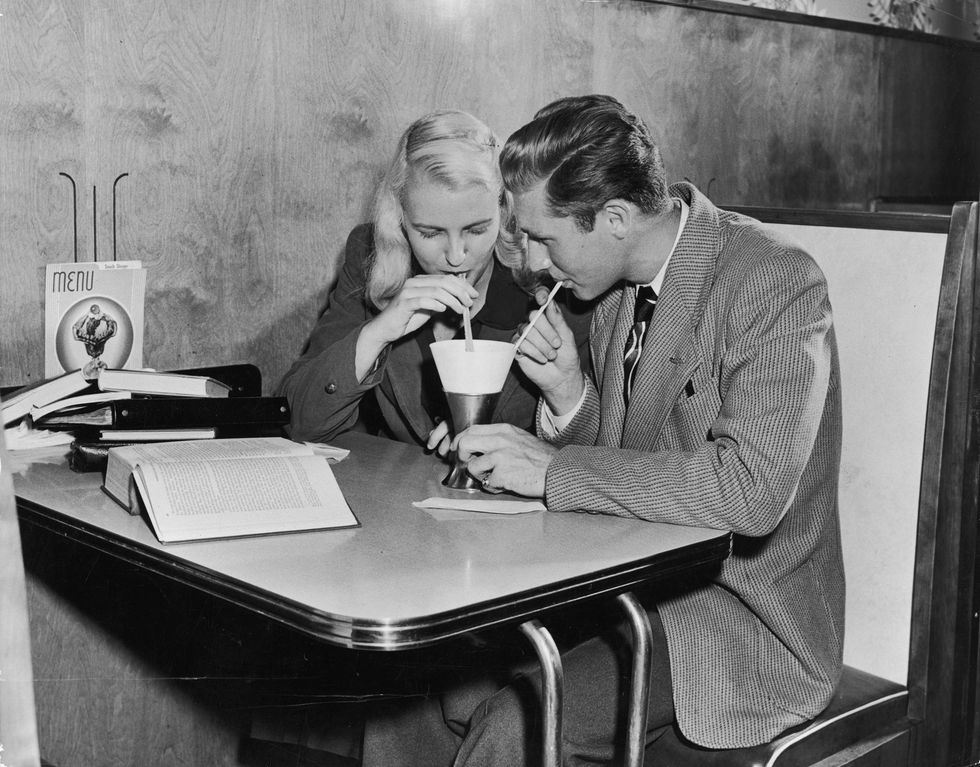
"For me, the question of who pays has always been about mutual respect rather than tradition. I think equality in relationships also means equality in gestures — and that includes being willing to share or at least offer to share the bill. Too often, I’ve found that some people still default to the idea that it’s automatically a man’s job to pay, which doesn’t sit comfortably with me. True equality should mean that both people come to the table as equals — financially and emotionally. That said, when I started dating my current girlfriend, I chose to pay on our early dates — but what stood out was that she offered to contribute, rather than assuming I would. That simple gesture of politeness and mutual respect went a long way. It showed maturity, balance, and appreciation, which set the tone for a much healthier, more equal relationship. I think conversations around dating etiquette need to evolve beyond outdated gender roles. It’s not about rigid rules, but about mutual understanding, generosity, and respect — whichever way it goes."
Martine Rose, Founder Of Meet My Paws, 58, She/Her
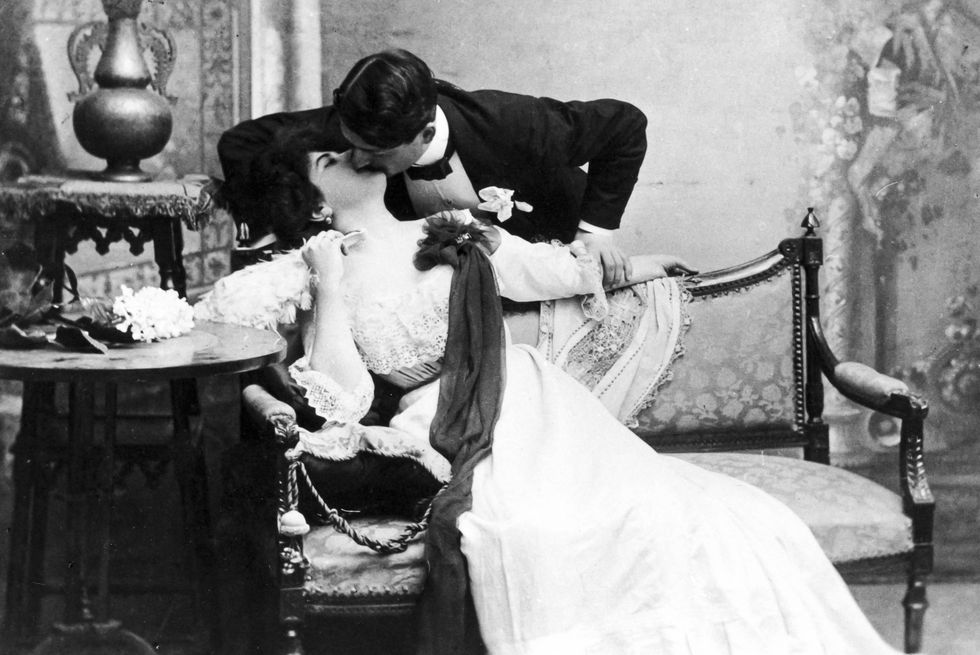
Getty Images
How do you suggest that who is paying/money in general is brought up during initial stages of dating?
"It depends on how people meet. I always encourage transparency and kindness, it’s about manners more than money. If the invitation came from one person, they can offer to pay, but ideally the other person should always offer to contribute. It sets the tone for mutual respect."
Have you ever encountered women/people who go on dates unsure about whether or not they will have to pay?
"Often, yes, especially when people come from different dating app cultures. Some expect 'traditional' gestures, others prefer equality. That uncertainty is why it’s so helpful to lightly acknowledge it before or during the date, even a simple 'shall we split it?' keeps it relaxed."
Do you think money/who is going to pay should be discussed before going into a date?
"Not directly, but context helps. If it’s dinner at a high-end restaurant, it’s fair to ask, 'shall we split?' beforehand. For coffee or drinks, it’s better to see how things flow, small acts of generosity often say more than pre-agreed rules."
What are your personal opinions on who should pay in heterosexual versus non-heterosexual relationships?
"For me, it’s not gendered, it’s about gesture. The person who suggests or invites can offer, and the other can reciprocate next time. In same-sex or non-traditional relationships, it’s even more about balance and thoughtfulness than convention."
If it's not discussed ahead of time, what should one do when the bill comes/it's time to pay?
"Stay calm, smile, and simply reach for it. It’s far more awkward to freeze or debate. If the other insists, accept graciously, and perhaps say, 'let me get the next one.'"
If one party pays on the first date, should it be assumed that the other would pay on the second date?
"Not assumed, but offered. Reciprocity keeps dating feeling natural and fair. Relationships that last often start with small gestures of mutual respect rather than rigid expectations."
Fran, Senior Communications Manager, 32, He/Him
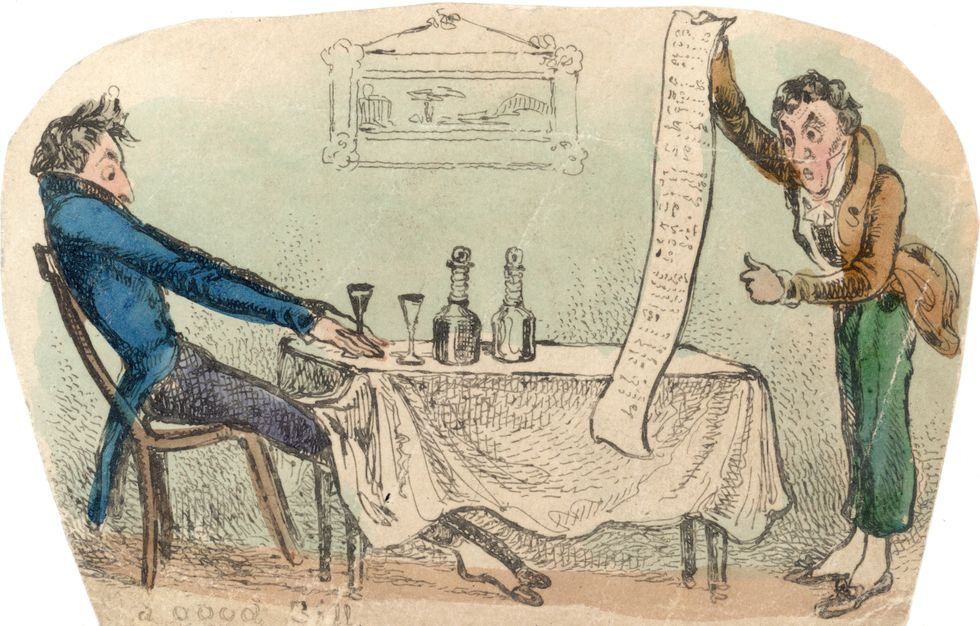
Getty Images
Before a first date, do you ever discuss who is going to pay beforehand?
"I never do! I firmly believe this ruins the vibe. I always show up to a date prepared to pick up the bill even if we end up splitting it."
If so, how do you bring that conversation up? If not, do you feel like you should or would you even be comfortable doing so?
"I am all for open and honest communication, but I don’t think there is an endearing way to talk about this before a date. If I initiate a date I plan to pick up the check myself. If the other person initiates it, I insist on splitting it."
What tends to happen when the bill arrives/it comes time to pay?
"If I initiate the date, I have my card ready to grab the bill and pay. Otherwise I will ask 'are you okay with splitting it?'"
If the other person pays on the first date, what tends to happen if there is a second date?
"I will always pick up the check and remind them that they paid last time, it is the polite thing to do (especially if you’ve made it to a second date!)"
Do you think money is a touchy subject during the initial stages of dating? If so, why do you think that is?
"Totally. The act of dating is expensive from getting ready, to commuting, to paying for activities, and all of these factors coupled with the emotional investment of going on dates can start to feel draining very quickly. Falling in love is not worth falling into debt, and a thoughtful date with consideration towards each other’s finances is infinitely better than feeling awkward about who pays the bill at the end."
Can you share any specific real life anecdotes regarding paying on dates?
"One of my most important rules for dating is to never try to impress someone early on with dinner at a fancy restaurant. I was on a third date with an older man at one of my favorite restaurants in New York that seemed to be going well until the check came and he excitedly told me that he has dates (plural) lined up with other people for the rest of the week. We were casually dating so he didn’t owe me anything, but it felt like unnecessary information to share on a date. Years later I still don’t know how he expected me to react to this. I immediately knew there would not be another date, so rather than pull out my own wallet and offer to split I stared him in the eye and kept looking at the bill until he got the hint, rolled his eyes, and put his Amex down for a $500 tab that I had no intention of contributing to. He found a boyfriend shortly after that so I’ve never carried any guilt about it and NEVER took a date to Don Angie ever again."

